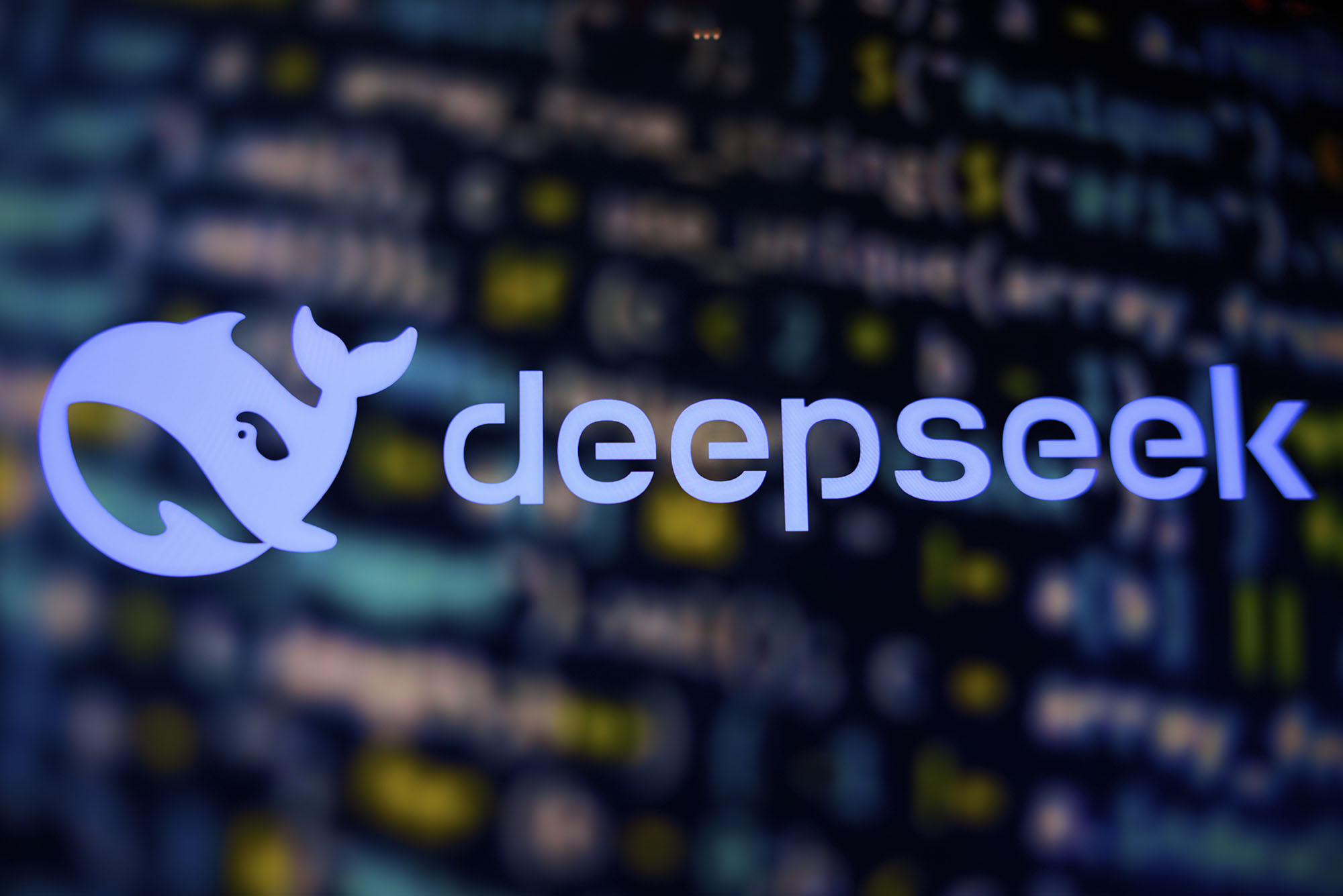We may make money when you click on links to our partners. Discover more.

What is synthetic general intelligence (AGI), and why does it matter? As one of the most talked-about subjects in technology today, it has stimulated a race among leading companies like OpenAI and Google to turn this innovative principle into reality. Understanding AGI is essential since it has the possible to revamp industries, affect our society in extensive methods, and alter the method we connect with innovation. Here's what you need to understand about what it may be able to do, how it may change industries and fields, and the substantial obstacles facing its development.

KEY TAKEAWAYS
• AGI differs from traditional AI in key methods in that it would have the ability to think, learn on its own, and adapt to brand-new obstacles like human beings unlike traditional AI, which is created for specialized jobs and operates within a minimal scope. It needs humans to upgrade and improve abilities. (Jump to Section).
• Once it comes true, AGI would have the ability to make amazing advances in numerous fields, consisting of health care, research study, and financing sectors. (Jump to Section).
• Creating AGI is difficult due to the research study challenges that consist of technical, ethical, and social concerns. Addressing these obstacles is main to maintaining the safe and positive development of this technology. (Jump to Section)
Featured Partners: Expert System Software
Discover more
TABLE OF CONTENTS
What is Artificial General Intelligence (AGI): A Clear Definition.
Understanding AGI vs Traditional AI.
Potential Applications of Artificial General Intelligence.
Challenges in Artificial General Intelligence Research.
3 Introductory AGI Courses to Consider.
Frequently Asked Questions (FAQs).
Bottom Line: Why Knowing What Is Artificial General Intelligence Matters.
What is Artificial General Intelligence (AGI): A Clear Definition
Artificial basic intelligence, or AGI, refers to a kind of expert system (AI) that can translate, discover, and carry out any cognitive task that a human can do. Unlike today's AI, which is developed to deal with particular tasks like suggesting products or processing information, AGI would be able to adapt to brand-new difficulties and apply knowledge across different fields. To put it simply, this advanced type of AI would think and reason like a human. While AGI holds excellent possible, it deserves noting that it is still an idea today, with no fully established systems offered yet.
Key Capabilities of Artificial General Intelligence
AGI would have a variety of abilities that simulate human intellectual functions, so it can perform jobs beyond the narrow focus of the present AI tools in the market. Some key capabilities include the following:
Human-Like Reasoning: The technology would be able to understand and make choices the method people do. It would believe critically, resolve problems, bphomesteading.com and develop services based on its own experiences and past interactions, comparable to how we use past understanding to brand-new circumstances.
Solving Unfamiliar Problems: One of AGI's strengths is its possible to deal with new issues. Unlike conventional AI, which is trained to carry out particular jobs, AGI would have the capability to deal with problems it hasn't been straight trained to fix. It could find out how to approach a completely brand-new obstacle, similar to people do when faced with something we've never ever encountered before.
Self-Learning and Adapting: AGI could fine-tune its skills and gain from experience, without the requirement to be by hand upgraded every time. It would observe and examine information, gain from errors, and find better methods to finish jobs in time. This indicates AGI might adjust to new situations and get better at jobs by itself.
Using Knowledge Across Different Areas: AGI would be able to take what it finds out in one location and use it to other tasks. For example, if it found out how to solve mathematics problems, it could utilize that knowledge to attend to difficulties in other fields, like science or business. The capability to transfer abilities across different areas is something people do naturally and would make the innovation flexible in varied sectors.
Understanding and Responding to Emotions: Recognizing and reacting to human emotions would also be within AGI's abilities. This would be essential in settings where comprehending individuals's feelings matters, such as health care, customer care, or social situations. By reacting to emotions properly, AGI would be better equipped to work with humans in a reliable method.
Understanding AGI vs Traditional AI
The table below provides a snapshot of the significant distinctions in between AI and standard or narrow AI by underscoring their capabilities, versatility, and existing status.
AGI would have the ability to believe, discover autonomously, and adapt to brand-new obstacles like human beings. However, it is still theoretical and has not been realized yet. On the other hand, conventional AI is developed for specific tasks and runs within a repaired scope. It can not get used to brand-new jobs without human input.
For example, an AGI might find out to identify medical conditions, then use that understanding to develop personalized treatment plans-and even change its approach based upon the client's progress. Additionally, it might use this analytical capability to jobs in completely various fields, such as creating company methods or advising on ecological preservation. On the other hand, conventional AI, like a diagnostic tool, can just analyze medical information for specific conditions. It can not adapt to other areas or improve on its own.
Potential Applications of Artificial General Intelligence
While AGI isn't here yet, its potential applications span many fields and hold excellent guarantee of extreme developments in many sectors. Without being restricted to specific tasks like narrow AI, AGI would be highly flexible and might apply its capabilities to fix multi-disciplinary issues. It could get rid of difficulties presently beyond the abilities of existing AI applications.
Transforming Healthcare
AGI would alter the game in healthcare by detecting complex and rare illness with greater accuracy, even in cases where signs are uncertain or overlap with numerous conditions. It might develop extremely tailored treatment plans by studying patient history, genetic information, and real-time health data. In addition, AGI might speed up drug discovery, determining possible treatments in weeks instead of years by processing massive datasets and running predictive simulations.
Advancing Scientific Research
In scientific research study, AGI would be able to replicate experiments, evaluate detailed datasets, and produce hypotheses. It might speed up breakthroughs in quantum physics, genomics, and environment science. By integrating knowledge from various domains, the innovation might uncover connections and options that might otherwise go unnoticed by traditional AI.
Improving Industry
Organizations in the commercial field could use AGI to increase performance in real-time by handling entire supply chains. It would predict and resolve disruptions before they take place. In production, it might supervise autonomous factories, optimizing production processes while maintaining security and quality standards. Its ability to adapt to altering scenarios would make it an invaluable tool in commercial environments.
Enhancing Business Strategy
AGI might enhance company decision-making by evaluating market trends, customer habits, and functional information to discover opportunities and threats. In contrast to narrow AI systems, AGI would innovate solutions to challenging company problems, such as dealing with financial unpredictability or forecasting long-lasting market shifts. Its ability to gain from varied sources would empower businesses to stay competitive.
Redefining Finance
In the financial sector, AGI could increase forecasting accuracy by finding patterns in huge amounts of financial information, so financiers and institutions can make informed decisions. It would likewise have the ability to identify fraud in real-time by acknowledging subtle anomalies that traditional AI systems may miss out on. Additionally, AGI might develop more robust monetary designs, considering complicated variables and situations to alleviate risks.
Challenges in Artificial General Intelligence Research
Developing AGI is among the most enthusiastic objectives in innovation, but it features many problems. These challenges include technical, ethical, and social areas, making AGI development a complex and multi-faceted process. Overcoming the following obstacles amounts ensuring security, maintaining ethical standards, and carefully preparing how AGI's introduction and use will impact people, industries, and society as a whole:
Making AGI Truly Flexible: AGI would need to handle a vast array of problems and adapt to brand-new scenarios, simply like people. Building a system of flexibility is exceptionally difficult since present AI tools are not created to believe or find out at this level of sophistication.
Massive Computing Needs: To reproduce human intelligence, AGI would need massive amounts of computing power to process information from diverse sources rapidly. Finding out how to make such systems effective and effective enough for real-world use is a considerable challenge.
Understanding Human Intelligence: We do not fully understand how human believing works, especially complicated aspects like intuition or consciousness. Without this understanding, it's challenging to develop machines that can replicate human-like thinking.
Making AGI Safe and Ethical: AGI might potentially be misused, like to create biased systems or hazardous tools like autonomous weapons. Researchers should ensure that AG is developed responsibly and follows strict ethical standards. This is a challenging job that demands worldwide collaboration.
Keeping It Under Control: There's a threat AGI could act in methods we don't anticipate, particularly given that it would have the capacity to discover and alter with time. Ensuring that these systems stay lined up with human values and are safe to use is one of the biggest obstacles in AGI research study.
Effect on Jobs and Society: If AGI becomes a truth, it could replace jobs or trigger economic inequality by benefitting some groups more than others. Preparing for these social effects is just as important as constructing the innovation itself.
High Costs and Resources: Researching AGI requires a lot of money, time, and specialist knowledge. Not all organizations have these resources, slowing down progress and leaving smaller services out of the race.
3 Introductory AGI Courses to Consider
Familiarizing yourself with AGI can provide you a competitive edge, whether you want to advance your profession in AI or kenpoguy.com just desire to stay informed about emerging technologies. The following introductory courses can assist you get a much deeper understanding of what artificial general intelligence is, so you can solidify your knowledge about this appealing AI advancement.
Artificial General Intelligence (AGI): An Introductory Course on Udemy
This Udemy course supplies an essential understanding of AGI, ideal for beginners with no previous experience. The course covers pertinent subjects, consisting of the structures of AI, the essentials of AGI, and the current patterns in the field. It also checks out the benefits, threats, and obstacles connected with AGI, equipping you with insights into what the advanced technology can achieve. The entire course includes 15 lectures and can be finished in around 45 minutes. Upon completion, you will receive a certificate to boost your qualifications in the task market. This introductory course costs $24.99.
Intro to Artificial General Intelligence (AGI): Future of AI on Udemy
Udemy's initial course provides a comprehensive overview of AGI for learners without any technical background. It discusses the historic context and foundation of AGI, the differences between narrow AI and AGI, and ethical factors to consider surrounding its advancement. In addition, it deals with future patterns in AI and AGI, shedding light on the challenges and opportunities that lie ahead. Spanning one hour and 46 minutes, the course consists of 39 lectures, on-demand video, and downloadable resources. It also has a useful test at the end to strengthen your understanding. You will be awarded a certificate once you complete the course. It is readily available as part of Udemy's premium plans, starting at $20 per month, or as a separate purchase of $49.99.
Artificial General Intelligence (AGI) on Udemy
This Udemy course brings a clear and wiki.vst.hs-furtwangen.de succinct intro to the topic, with on-demand videos and 22 lectures. It elaborates on major AGI concepts and the function of robotics in AGI advancement. It likewise analyzes the ethical, software, and hardware challenges in producing AGI. The course provides tests to evaluate your understanding and a certificate of conclusion. Priced at $44.99, it is made for learners at any level, making it available and important for anyone who wishes to learn more about AGI.
Frequently Asked Questions (FAQs)
Achieving AGI might change industries, improve decision-making, and result in considerable improvements in innovation. However, it also raises issues about principles, task displacement, and the requirement for appropriate guideline to ensure it is established securely and responsibly.
Experts disagree on how far we are from accomplishing AGI. Sam Altlman of OpenAI thinks in 2025, AI agents might join the labor force, eventually leading the way to AGI advancement. On the other hand, a study of AI researchers puts the median estimate around 2047. Despite fast AI developments, existing systems are still limited to narrow tasks and do not have the broad, flexible thinking of humans-so AGI is likely still years away.
The idea of AGI totally replacing people is still discussed. Even though it's likely that AGI will help us by taking over repeated tasks, there is a possibility that it might displace certain jobs. That stated, rather than entirely replacing humans, AGI is expected to work along with us, dealing with technical responsibilities while we concentrate on jobs that require creativity and empathy. At the end of the day, the results of AGI will depend upon how society chooses to manage and integrate it.

Bottom Line: Why Knowing What Is Artificial General Intelligence Matters
Understanding synthetic general intelligence is crucial since this innovation could alter industries, resolve tough problems, and change how we utilize AI. But as we start to establish AGI, we must carefully address a number of challenges, consisting of technical problems, ethical concerns, and its general effect on society. By finding out about AGI's possible and threats, we can pursue making certain it is produced properly and utilized in methods that would benefit everyone.




